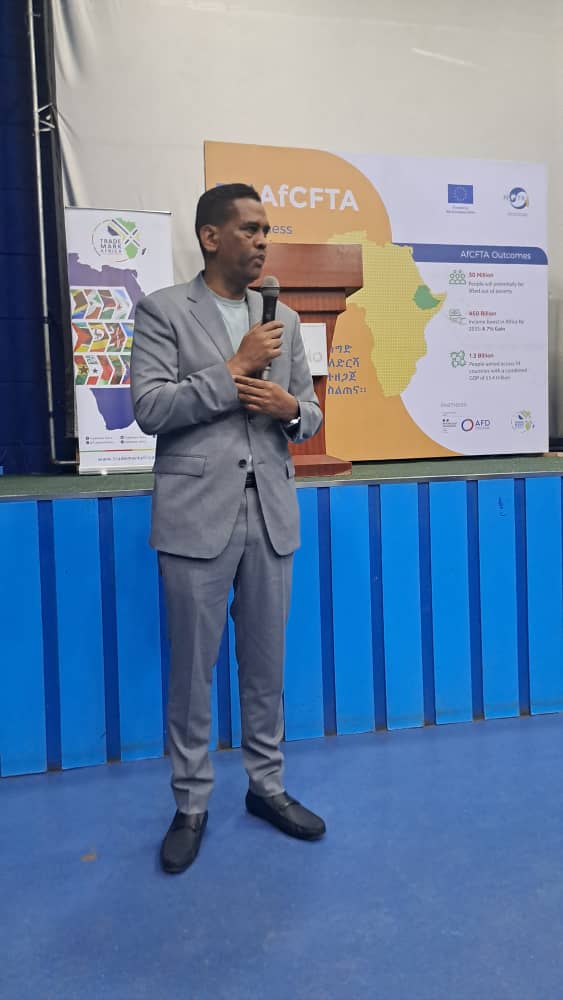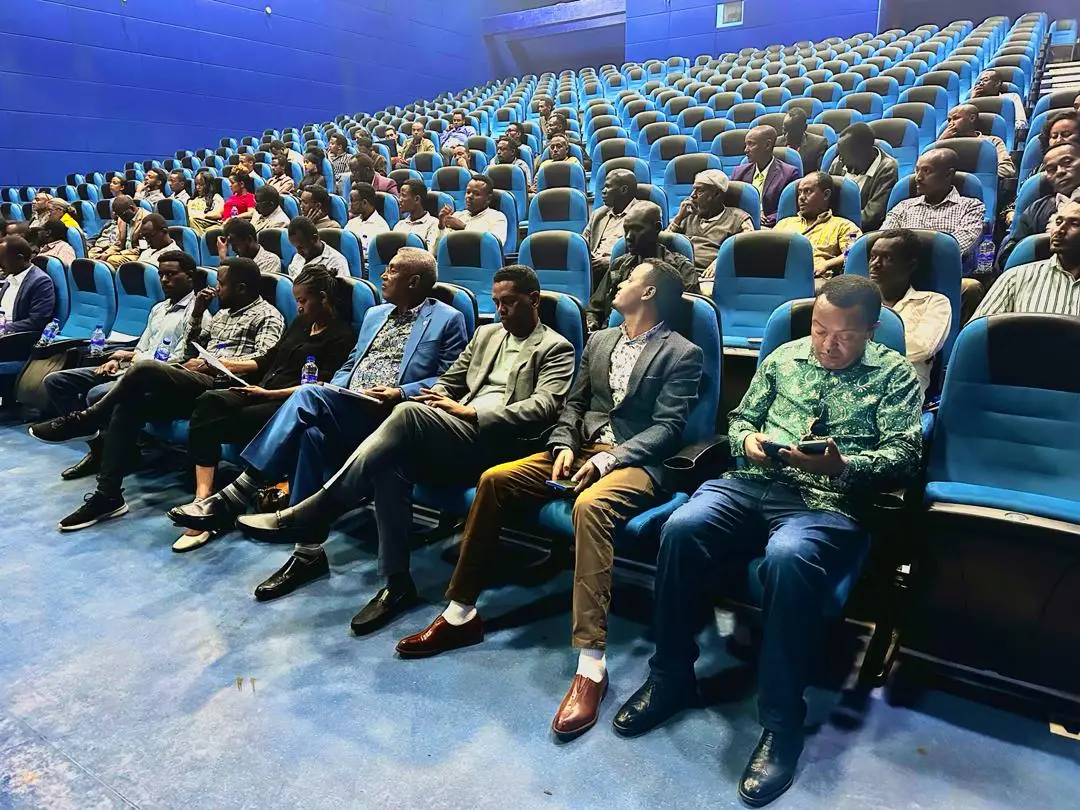From April 17-18, 2024, Ethiopia’s Ministry of Trade and Regional Integration (MOTRI) conducted training sessions in Jimma on the Africa Continental Free Trade Area (AfCFTA). Supported by the Agence Française de Développement, TradeMark Africa, and funded by the European Union, these sessions aimed to educate regional trade offices, chambers of commerce, sectoral associations, women traders, media representatives, private entities, and academics on the advantages and opportunities of AfCFTA. This initiative, part of a series of AfCFTA sensitisation efforts, further cements Ethiopia’s role in promoting regional unity and inclusive industrialisation, positioning its private sector to take advantage of the opportunities provisioned within the AfCFTA.
AfCFTA is poised to unlock Africa’s economic potential, through elimination of tariffs on at least 90% of the goods, aligning trade policies and fostering supportive business environment. The agreement is a step towards boosting intra-African trade, which currently lingers around 14.4% of total African exports. Forecasts from UNCTAD suggest that AfCFTA could increase this figure by approximately 33% and halve the continent’s trade deficit. Ethiopia strategic geographical positioning and burgeoning industrial sector make it a prime candidate to reap benefits from implementation of AfCFTA. Ethiopia’s developmental strategies, focused on industrial growth and value addition, are aligned with the goals of AfCFTA. This alignment enables Ethiopia to leverage its comparative advantages in sectors like agriculture and manufacturing, setting the stage for sustainable economic expansion. Moreover, with a significant demographic dividend, Ethiopia is poised to benefit from AfCFTA’s emphasis on trade in services, which promises to enrich human capital potential and create cross-border employment opportunities.
During the training sessions, TMA Ethiopia Country Director Mr. Ewnetu Taye emphasised the role of all stakeholders in driving the successful implementation of AfCFTA. “From the private sector to academia, everyone has a part to play. The ongoing sensitisation campaigns are crucial for deepening understanding and fostering ownership of the responsibilities that come with the agreement.”

He also highlighted the successes of previous workshops disclosing that they have not only improved understanding of regional integration and the specifics of the AfCFTA agreement but have also underpinned the potential market opportunities and challenges it presents to Ethiopia. ‘’There is an increasing realisation of the research areas that could be further explored to boost Ethiopia’s trade within Africa,’’ concluded Mr Taye.
The third part of Ethiopia’s AfCFTA campaign will take place in Mekelle in the first week of May 2024.


